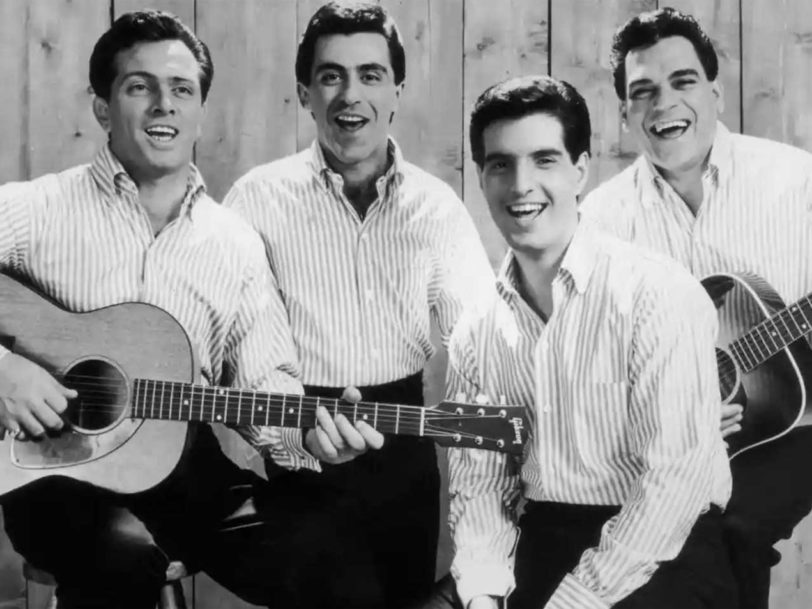According to Gaudio, however, he was dozing off while watching a Ronald Reagan movie, called Tennessee’s Partner, when he was jolted awake by the on-screen noise of John Payne slapping Rhonda Fleming, whose character replied, “Big girls don’t cry.” Gaudio, who also co-wrote and produced an entire album of songs for Frank Sinatra and produced six Neil Diamond albums, claimed he immediately wrote down that iconic line on a scrap of paper, before falling asleep again. When he found the note the next morning he started writing the song. The main problem with his story is that the line simply does not appear in that film.
According to Crewe, he was also dozing off, in his Manhattan home with the television on, when he awoke to see Payne attacking Fleming. He said he had seen this disturbing sequence in the movie Slightly Scarlet, in which the line does actually appear. Gable was in neither movie.
All the hallmarks of The Four Seasons
Whatever the mysterious inspiration behind Big Girls Don’t Cry, it is beyond dispute that after the words and music were completed, the band cut the famous version that appears on Sherry & 11 Others. The quartet, who dropped their original name of The Four Lovers in order to adopt the name of an East Coast club (“because it sounded like a great name for a group”, said Valli) were fans of Sinatra and the folk-jazz group The Four Freshmen.
The two-and-a-half-minute Big Girls Don’t Cry, released on the Vee-Jay label with a B-side called Connie-O, had all the hallmarks of The Four Seasons’ popular sound: brilliant doo-wop vocalising, led by Valli’s soaring falsetto, and tight four-part modern harmonies, arranged by Massi. Valli described Massi as his “musical mentor” and said his arrangements “amazed musicians who had studied for years”. The quartet also contributed a pulsating hand-clap beat that blended wonderfully with the percussive work of David “Panama” Francis, a veteran jazz drummer who’d been given his nickname when he played with trumpeter Roy Eldridge in the 30s.
Big Girls Don’t Cry hit No.1 on the Billboard Hot 100 on 17 November 1962 and, like Sherry, spent five weeks at the top of the charts.




